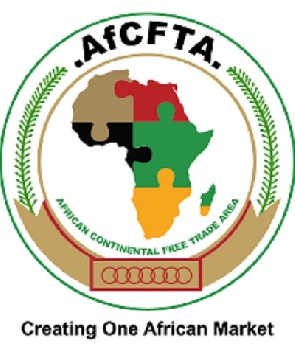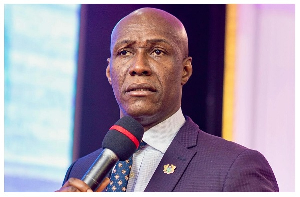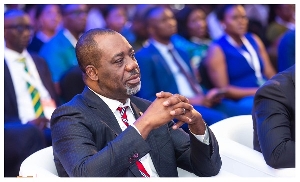 African Continental Free Trade Area
African Continental Free Trade Area
The Government of Ghana has clearly demonstrated its determination to host the Secretariat of the African Continental Free Trade Agreement (AfCFTA). And whilst government is very hopeful that it will be ready for the implementation of the agreement, come July 1st when trading starts, it is not yet clear whether the Ghanaian private sector itself is ready.
The country missed the opportunity regarding prior consultation with the private sector, before the agreement was signed in Kigali in March 2018. Again, Ghana has delayed in retooling its private sector-and accelerating its preparedness- ahead of the implementation date. Most private sector Ghanaians were expecting a major policy statement in the 2020 budget and economic policy concerning support to the private sector, but nothing clearly distinctive was proclaimed.
The private sector is clearly a major player AfCFTA agreement and its implementation, therefore it is important that their readiness is assessed as early as possible, in order to ensure that local players would be able to reap the full benefit of enhanced market access across Africa.
Whilst opinion about readiness seems mixed, there are some industry players who believe that the readiness of the state, in terms of the capacity of its institutions and friendliness of the macroeconomic environment, is more important than the readiness of the private sector at the firm level. This is because private sector takes advantage of the business environment created by the state.
Even if a firm is ready to produce for both local and other African markets, it may still not be capable to compete with products coming from the more developed African economies; South Africa, Egypt, Tunisia and Morocco, where electricity is cheaper and interest rates are lower.
For example, the Ghanaian firm will need to borrow at an average rate of 30% per year, while competitor firms in South Africa or Tunisia are borrowing at an average of 6%. In all terms, the cost of production for the Ghanaian based firm will be higher and consumers will shy away from the locally manufactured product. And so, whilst being concerned about the private sector readiness, we need to become equally concerned about the economic readiness of the country for the smooth implementation of the agreement.
Majority of Ghanaian firms are SMEs, with key challenges being access to capital, technology and lack of international certifications. Capital to expand comes to local firms at huge cost which is not sustainable in this competitive pan African and global market.
Majority of firms in Ghana have not undergone any massive overhaul of their plants and machinery, and certification issues (e.g: ISO certification, Aflatoxin content) are constantly brought up on the international markets. The fact is that most Ghanaian firms currently focus on producing goods and services for the Ghanaian market, without expressing an interest even in neighboring countries, or their immediate regional ECOWAS market.
Ghanaian products are held in high esteem across Africa. This “free goodwill” is a valuable asset to exploit and Ghanaian firms must be able to capitalize on it, to produce and export its goods and services into the African market.
Currently, Ghana’s intra-African exports account for 34.2% of its total goods exports, mainly in manufactured products. Ghana’s top five intra-African export of goods are Gold, semi-manufactured forms; Machinery parts, non-electrical; Plywood, all softwood; Panels, laminated woods; and Aluminum alloy plate, sheet, strips. About a third of Ghana’s gross domestic product from 2000 to 2015 is from the manufacturing sector. Manufacturing accounts for 26% of gross domestic product.
Currently, Ghana’s main export partners are South Africa, Burkina Faso and Togo. Among her major exports to South Africa are petroleum products and minerals; her major exports to Burkina Faso are food and chemicals; while her major exports to Togo are food, petroleum products, and plastics.
As at 2016, the services sector made up 53% of Ghana’s gross domestic product. The share of services in intra-African trade was 22% in 2016.
Will Ghana Become the Brussels of Europe?
At a stakeholder meeting last week to assess the readiness of the Ghanaian private sector readiness for the AfCFTA implementation. Someone said that if the capacity of the private sector and the business enabling environment for the country is not taken seriously and addressed, Ghana and for that matter Accra will become like the Brussels of Europe where people travel to attend meetings at the Secretariat at and the country would not be able to produce and export to other markets like Germany, France and Netherlands.
Conclusion
I would say that the future is not that grim, the technical committee set up by the Ministry of Trade and Industry (MOTI) last week on boosting intra African trade (BIAT) and among others have a lot to do to help Ghana to catch the full benefit of the AfCFTA agreement. Whatever the country needs to do before the second phase of the negotiation of the AfCFTA on investment, intellectual property and competition policy comes to effect, we must do it before it is too late for us.












